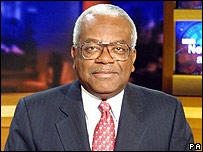Idle Quotes
Letter to C.L. Moore (August 1936), quoted in "H.P. Lovecraft, a Life" by S.T. Joshi, p. 574,
Without doubt, machinery has greatly increased the number of well-to-do idlers.
Karl Marx, Samuel Moore, Edward Aveling, Friedrich Engels (2011). “Capital, Volume I: A Critique of Political Economy”, p.405, Courier Corporation
William Congreve (1753). “The Works of Mr William Congreve...”, p.4
A Study in Scarlet ch. 1 (1888)
An idler is a watch that wants both hands; As useless if it goes as when it stands.
William Cowper (1872). “The poetical works of William Cowper: Complete ed., with memoir, explanatory notes etc”, p.208
Samuel Johnson, Arthur Murphy, Francis Pearson Walesby (1825). “The Works of Samuel Johnson, LL.D..: The Adventurer and Idler”, p.152
Flee idleness... for no one is more exposed to such temptations than he who has nothing to do.
Saint Robert Bellarmine , Aeterna Press (2016). “Saint Robert Bellarmine Collection [3 Books]”, p.1410, Aeterna Press
William Cowper, Robert Southey, William Harvey (1835). “The Works of William Cowper: Comprising His Poems, Correspondence, and Translations. With a Life of the Author”, p.15
George Bernard Shaw (2015). “George Bernard Shaw: Collected Articles, Lectures, Essays and Letters: Thoughts and Studies from the Renowned Dramaturge and Author of Mrs. Warren’s Profession, Pygmalion, Arms and The Man, Saint Joan, Caesar and Cleopatra, Androcles And The Lion”, p.306, e-artnow
"My Inventions" by Nikola Tesla, (Ch. 1), 1919.
If history is deprived of the Truth, we are left with nothing but an idle, unprofitable tale.
Polybius (2003). “The Rise of the Roman Empire”, p.25, Penguin UK
Alexander Smith (1863). “Dreamthorp: A Book of Essays Written in the Country”, p.181
Samuel Smiles (2009). “Self-Help: With Illustrations of Character and Conduct”, p.5, The Floating Press
The bees can abide no drones amongst them; but as soon as they begin to be idle, they kill them.
Socrates, Plato, Aristotle (1967). “Wit and Wisdom of Socrates, Plato, Aristotle: Being a Treasury of Thousands of Glorious, Inspiring and Imperishable Thoughts, Views and Observations of the Three Great Greek Philosophers, Classified Under about Four Hundred Subjects for Comparative Study”







